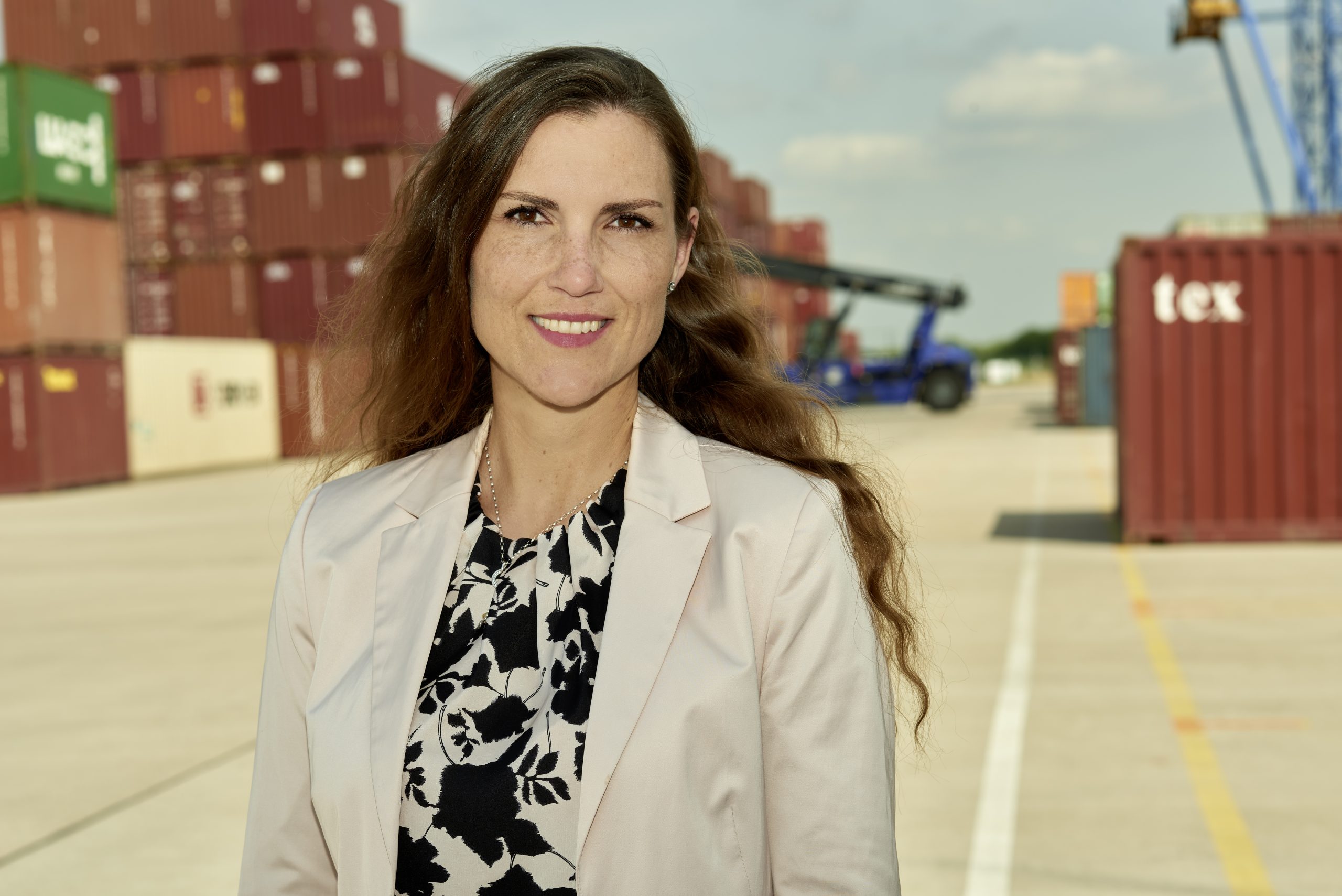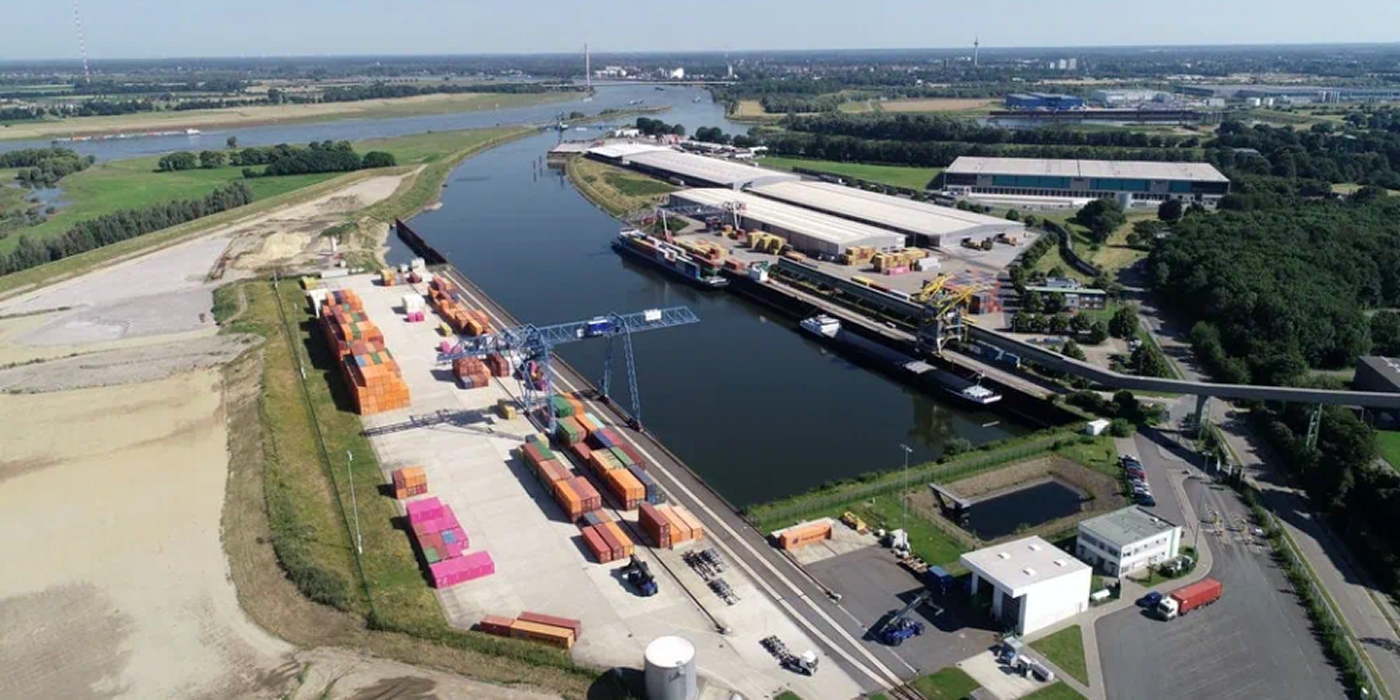DeltaPort is a German inland port group located in the Lower Rhine region, consisting of three strategically connected terminals: Hafen Emmelsum, Hafen Wesel, and Hafen Voerde. Positioned at the intersection of key waterway, rail, and road networks, DeltaPort serves as a vital multimodal logistics hub for regional and international trade. The port group is known for its strong commitment to innovation, sustainability, and intermodal transport solutions, making it a frontrunner in green logistics and port decarbonisation efforts within inland Europe.
DeltaPort has been one of the most engaged pilot ports within the GRIP-ESMS project. As a multi-terminal inland port complex in Germany, DeltaPort played a key role in testing the full range of GRIP tools, providing comprehensive feedback based on real operational conditions. Their strategic focus on sustainability and innovation made them an ideal partner for assessing the applicability of the GRIP-ESMS in a complex, multi-user port environment.
DeltaPort worked closely with the project team throughout the GRIP-ESMS initiative. They reviewed and tested the tools extensively, helping us to refine them, and successfully applied all tools to enhance their own sustainability strategy. For this interview, we spoke with Patrizia Pollmann and Alexandra Nitsche, who are responsible for project management in DeltaPort and have greatly contributed to the Green Inland Ports project developments.
1. What are the environmental and sustainability objectives for the port of DeltaPort?
DeltaPort aims to achieve maximum sustainability in the most efficient and economically viable way. We are committed to setting new standards for environmentally friendly port operations. Together with our partners, we work closely to implement sustainable projects and drive innovation in the sector. Our objectives include reducing emissions, expanding the use of renewable energy, and above all, promoting a modal shift towards more sustainable transport modes such as rail and inland waterways.

2. What major challenges do you need to overcome for the realisation of your environmental and sustainability objectives?
One of the main challenges we need to overcome is obtaining reliable and comprehensive data to effectively measure and monitor environmental performance. In addition, coordinating and aligning all stakeholders is essential. Bringing partners together to pursue shared sustainability goals requires strong collaboration and clear communication. Navigating complex and evolving regulatory requirements is also a key challenge, as we work to ensure compliance while staying innovative and efficient. Overcoming these challenges is crucial for making measurable progress toward our sustainability objectives.

3. What should a future-proof environmental or quality management system include to help DeltaPort boost energy efficiency and support sustainable development?
A future-proof management system should provide clear guidelines, practical tools, and feasible actions to help DeltaPort boost energy efficiency and support sustainable development. It should have the ability to be tailored to the specific needs of each user. Importantly, the system should consider that organisations smaller in size often have limited workforce capacity to manage and monitor complex processes. Therefore, it should be user-friendly, resource-efficient, and easy to integrate into daily operations. Flexibility and adaptability to regulatory changes and new technologies are also essential for the long-term success of such a management system.
We would like to thank DeltaPort for their active participation and contributions to this project!
